Long-haul flights can feel like torture chambers at 35,000 feet, leaving you drained and disoriented when you finally touch down. Whether you’re heading across the ocean for business or pleasure, spending half a day cramped in an airplane doesn’t have to ruin your trip. With the right preparation and smart strategies, you can actually arrive at your destination feeling refreshed and ready to explore. Here are ten proven techniques that frequent flyers swear by to make those marathon flights bearable.
1. Choose Your Seat Wisely
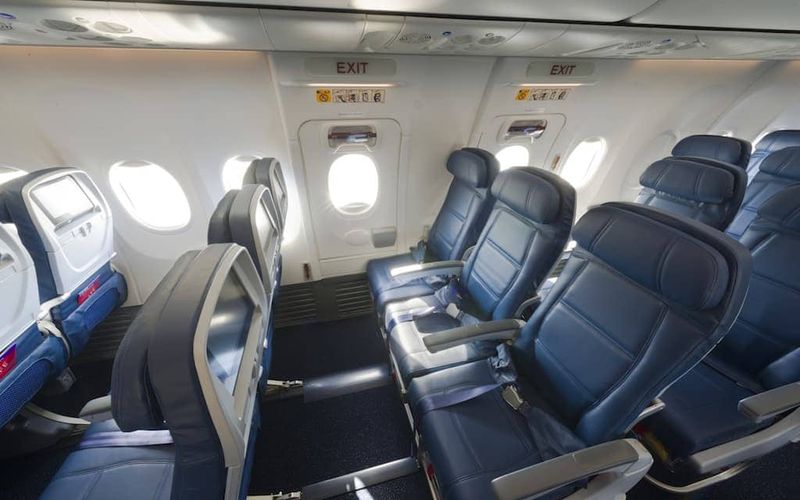
Your seat selection can make or break your entire flight experience, so don’t leave this crucial decision to chance. Aisle seats work perfectly for restless travelers who need frequent bathroom breaks or like stretching their legs regularly.
Window seats offer the best sleeping environment since you can lean against the wall without disturbing anyone. Exit rows and bulkhead seats provide extra legroom but remember you can’t store bags under the seat in front of you.
Stay away from last-row seats that barely recline and avoid spots near bathrooms where you’ll deal with constant foot traffic and unpleasant odors.
2. Dress for Comfort (Not Style)
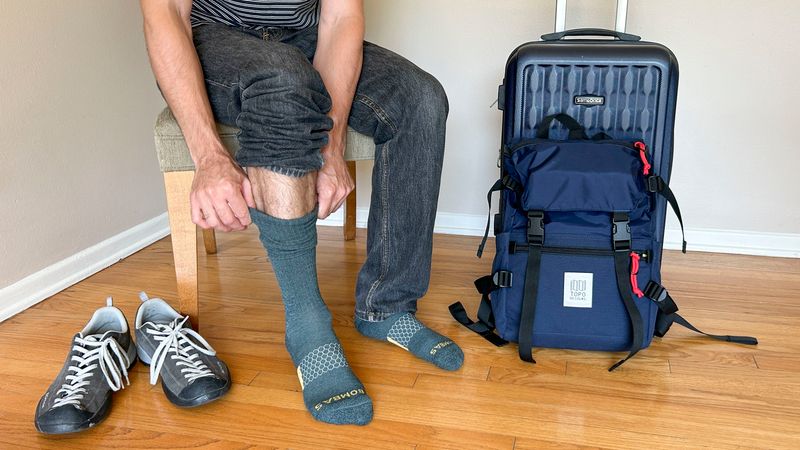
Fashion takes a backseat when you’re trapped in a metal tube for twelve hours, so prioritize comfort over looking Instagram-ready. Airplane temperatures swing wildly from arctic cold to tropical heat, making layers your best friend for staying comfortable.
Ditch tight jeans and restrictive belts that will dig into your skin as the hours drag on. Compression socks prevent painful leg swelling, while slip-on shoes make security checkpoints and bathroom visits much easier.
Pack a soft scarf that doubles as a blanket, pillow, or eye mask when airline amenities fall short of expectations.
3. Hydrate Like It’s Your Job

Airplane cabins suck moisture from your body faster than a desert wind, making proper hydration absolutely critical for feeling human upon arrival. Aim for one cup of water every hour, or consider coconut water and electrolyte packets for better absorption.
Alcohol might seem tempting for relaxation, but it actually dehydrates you faster at altitude. Coffee and sodas also work against you, leaving you more parched than before.
Bring a hydrating face mist to combat the dry cabin air that turns your skin into sandpaper during long flights.
4. Pack a Survival Kit

Smart travelers never rely solely on airline amenities, which often disappoint when you need them most. Noise-canceling headphones, eye masks, earplugs, and neck pillows form the foundation of any decent survival kit.
Personal care items like lip balm, moisturizer, toothbrush, toothpaste, and hand sanitizer help you stay fresh throughout the journey. Airlines rarely provide these essentials, especially on international routes.
Download entertainment beforehand including movies, podcasts, and audiobooks since seat-back screens frequently malfunction or offer terrible selection. Having backup entertainment prevents boredom-induced misery during those endless middle hours.
5. Move Every 2 Hours
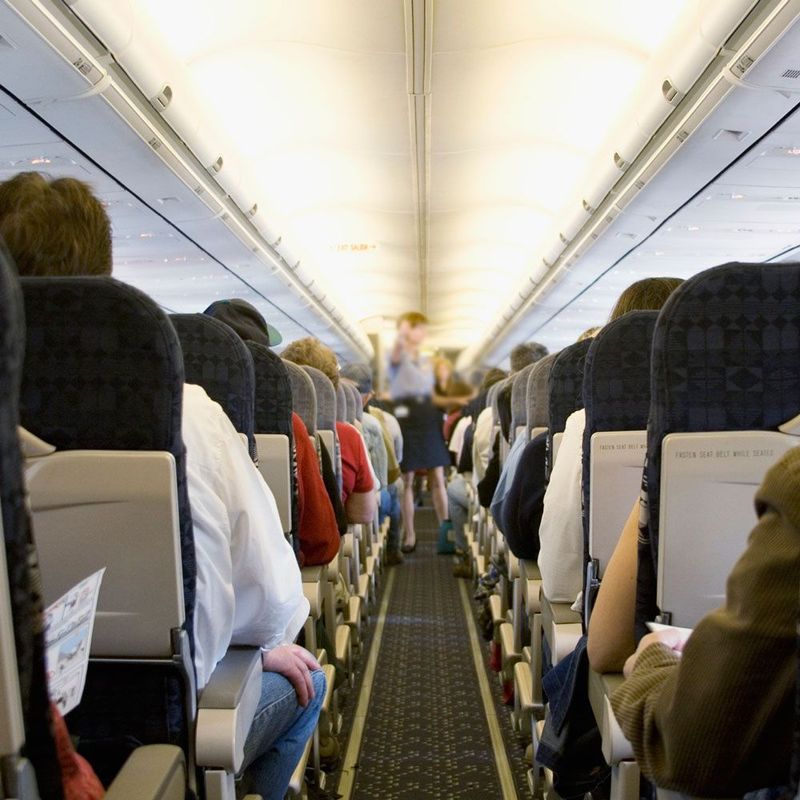
Sitting motionless for twelve hours puts you at serious risk for blood clots, muscle stiffness, and circulation problems that can ruin your entire trip. Set phone reminders to move around every two hours, even if you don’t feel like it.
Simple exercises like ankle circles, shoulder rolls, and short walks to the galley keep your blood flowing properly. Seated stretches work wonders too – search YouTube for “plane yoga” routines before your departure.
Flight attendants appreciate passengers who move responsibly and won’t mind you standing occasionally near the galley areas between service times.
6. Optimize Your Sleep
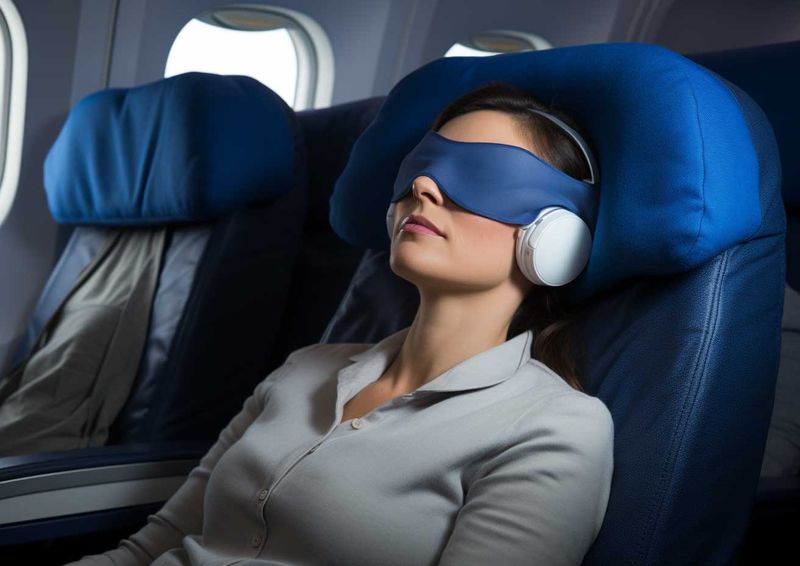
Conquering jet lag starts the moment you board by immediately setting your watch to destination time and mentally adjusting your schedule. This simple trick helps your brain start adapting to the new time zone right away.
Melatonin supplements (1-3mg) work effectively for crossing multiple time zones, but avoid prescription sleeping pills that leave you groggy and disoriented. Complete darkness and silence create the best sleep environment possible.
Combine eye masks with noise-canceling headphones to block out crying babies, chatty neighbors, and bright cabin lights that interfere with quality rest.
7. Eat Smart

Airline food quality varies dramatically, but you can guarantee better meals by pre-ordering special options like vegetarian, kosher, or gluten-free dishes. These meals typically get served first and taste fresher than standard offerings.
Pack backup snacks including nuts, protein bars, and dried fruit since airline meal timing rarely matches your hunger schedule. Heavy, greasy foods make you feel sluggish and uncomfortable for hours afterward.
Light, nutritious snacks provide steady energy without the post-meal crash that leaves you feeling worse than before eating anything at all.
8. Entertain Yourself Strategically
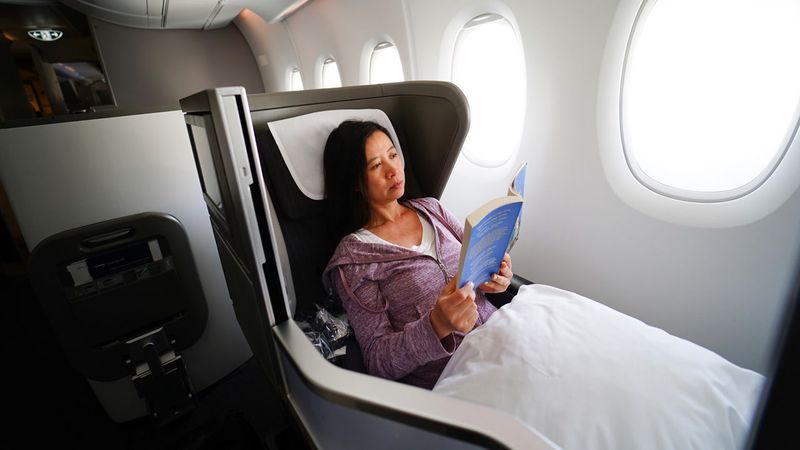
Binge-watching movies for twelve straight hours sounds appealing but actually exhausts your brain and strains your eyes unnecessarily. Break up screen time with other activities that engage different parts of your mind.
Podcasts and audiobooks give your eyes a much-needed rest while keeping your brain occupied with interesting content. Classic games like Sudoku, crosswords, or tablet games provide mental stimulation without screen fatigue.
Save a highly anticipated movie or book specifically for your flight since new content holds your attention much better than rewatching familiar favorites.
9. Freshen Up Before Landing

Nothing beats that refreshed feeling when you clean up before landing, especially if you’re connecting to another flight or heading straight to business meetings. Start your refresh routine about thirty minutes before touchdown.
Brush your teeth, wash your face with cold water, and apply deodorant to feel human again after hours in recycled air. Change clothes if possible, particularly your shirt and underwear for maximum freshness.
Facial sprays work like magic to wake up tired, dry skin and give you that healthy glow that makes people think you actually enjoyed your flight experience.
10. Adjust to Your New Time Zone ASAP
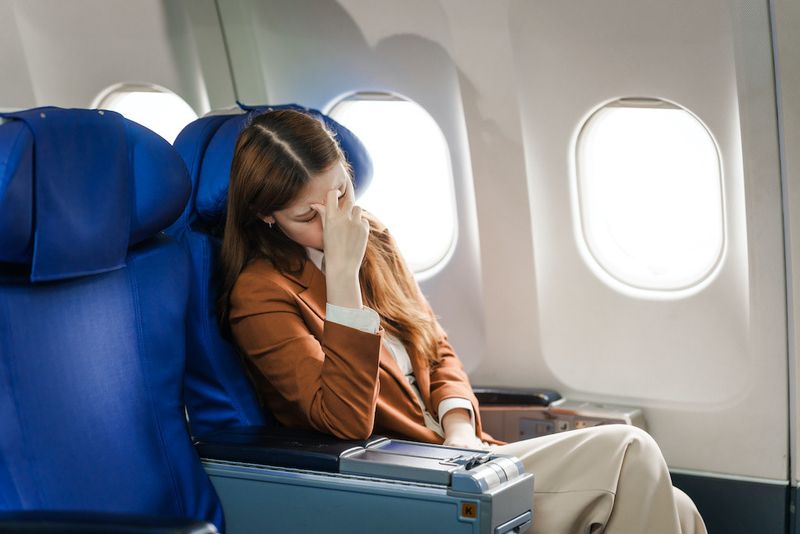
Your jet lag recovery speed depends entirely on how quickly you adapt to local time, so resist the urge to nap immediately if you arrive in the morning. Force yourself to stay awake until a reasonable local bedtime, no matter how exhausted you feel.
If you land at night, head straight to bed even if you’re not tired – your body needs to sync with the darkness. Natural sunlight exposure works better than any supplement for resetting your internal clock.
Spend time outdoors immediately after arrival to help your circadian rhythm adjust naturally to the new environment and time zone.



